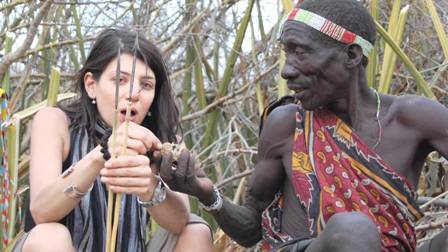Unlocking origins of human behaviour on tap for psych talk
Ever wondered about the origins of how we humans behave? How we worked together to build a society and an economy? How and why we find faces attractive? If so, you’ll want to attend the next lecture in Nipissing’s psychology department speaker series, Human behavioural origins: Insights from hunter-gatherers, featuring Dr. Coren L. Apicella. It takes place on Tuesday, November 25, at 11 a.m. in room H105.
Apicella is an Assistant Professor of Psychology at the University of Pennsylvania. She is also a regular expert host of the popular National Geographic show called Brain Games. She studies both hunter-gatherers and Westerners to explore the cultural and evolutionary origins of social behaviour. Her work specializes in mate selection and attraction, behavioural endocrinology, behaviour genetics, sex differences, behavioural economics and social networks and the evolution of cooperation.
Here’s an abstract on the talk:
This talk reports the results of three empirical studies on the evolutionary origins of human behaviour. Human preferences are usually studied in people in industrialized contexts (often undergraduate students). However, these well-studied people may not be representative of the wider breadth of contemporary and historic humanity. I explore behaviour within an isolated and evolutionarily relevant population of hunter-gatherers living in remote regions of Tanzania—the Hadza. The first study considers the evolution of cooperation and how social structure may have supported cooperation in our ancestors. Second, I show that the endowment effect bias is not a human universal – a result that points to the importance of culture in generating differences in economic behaviour. The last study concerns averageness in judgments of attractiveness in faces and suggests that experience is important in shaping standards of beauty.
Check out this short video on her work, and visit her webpage, here.

